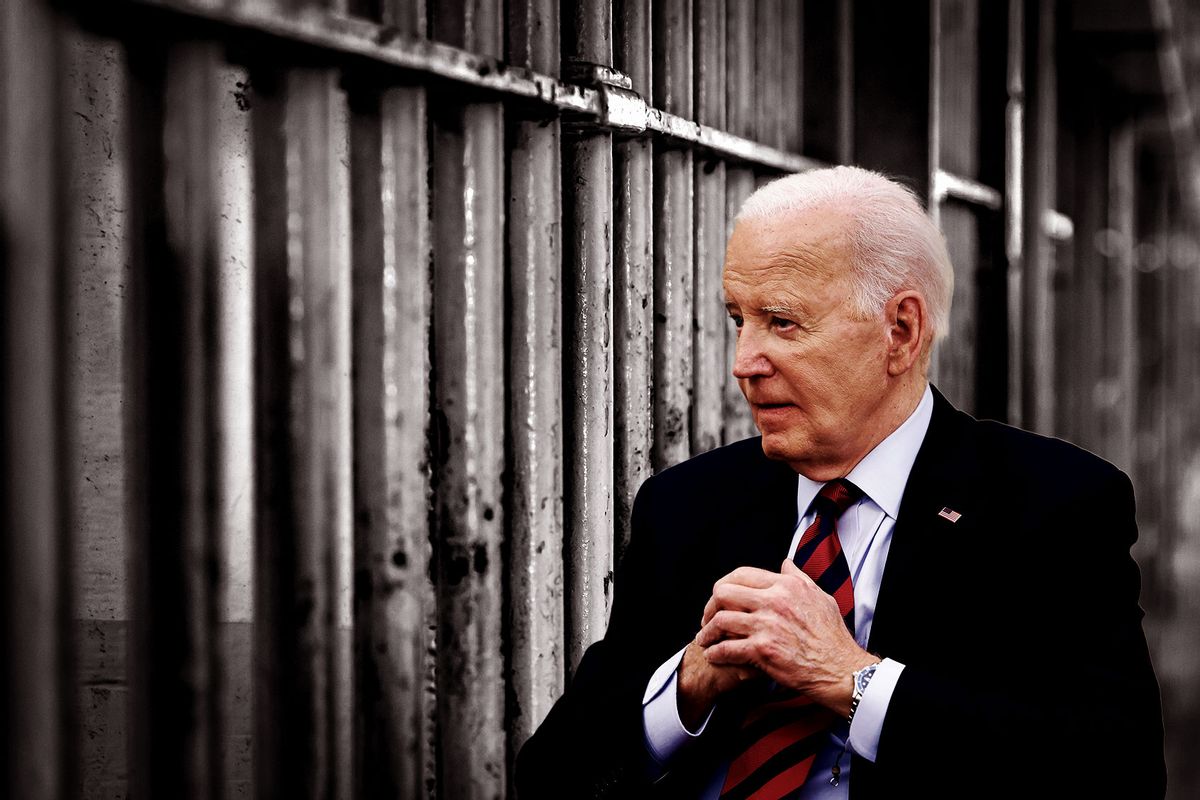For months, Scott Abbey reported to work on the sandwich line of an industrial kitchen. He and his coworkers prepared 20,000 meals each day, which were then sold by a $16.2 billion multinational food and facility services conglomerate. In order to use the restroom at work, Mr. Abbey and his coworkers were forced to wade through urine and feces that overflowed from toilets that were never cleaned. The fecal matter on their shoes traveled with them back into the kitchen, where Mr. Abbey and his coworkers often found rodents around the food they prepared. Mr. Abbey was given a single meal per day and provided no means to challenge either the conditions he suffered or the fact he earned $0 for his work.
Scott Abbey’s story may seem ripped from the pages of history, a relic of the unregulated workplaces in America’s early-industrial past. But Mr. Abbey is an American worker in the 21st century. Why wasn’t he protected by the laws that protect the rights of modern workers? The answer is simple: Mr. Abbey was incarcerated, working behind bars at the Santa Rita Jail in Alameda County, California.
Mr. Abbey’s story is not unique. Thousands of incarcerated people nationwide are forced to work as an implied condition of their sentence. They staff morgues, produce military electronic technology, build office furniture, fight wildfires, and labor in deadly temperatures on former plantations. Carceral labor's products are ubiquitous yet often overlooked. Even the food we eat — from widely known brands like McDonalds, Costco, or Walmart — arrives at our tables thanks in part to carceral labor. Private businesses, recognizing that they can pay an individual behind bars far less than a worker on the outside, exploit incarcerated labor to boost their profits.
The Thirteenth Amendment's Troubling Exception
As many Americans commemorate Juneteenth this week – a day marking when the promises of the Emancipation Proclamation were finally delivered and the last enslaved people were freed, a day that Black Americans have celebrated for years that Biden recently made a federal holiday – we must shine a light on the shameful exception that allows forced labor to continue in new forms.
Although the Thirteenth Amendment to the Constitution formally abolished U.S. slavery, it includes a terrible exception: permitting slavery and involuntary servitude as “punishment for crime,” allowing governments, prisons, and the companies contracting with them to “hire” and exploit incarcerated workers as they see fit.
We need your help to stay independent
The Thirteenth Amendment's loophole was first exploited during the wake of the Civil War with “Black Codes” laws enabling the arrest of Black Americans for vague offenses like “vagrancy” and forcing them into involuntary servitude. Through a practice known as “convict leasing,” many imprisoned Black Americans were leased to private companies including railways, mines, and yes, even plantations, where they endured harsh and hazardous conditions.
Despite the abolishment of convict leasing in 1941, states soon found other insidious tools to exploit Black Americans for free labor in discriminatory policing and mass incarceration. This resulted in Black communities, who make up 13 percent of the United States’ total population but 35 percent of the prison population, seeing a disturbingly familiar picture: hundreds of thousands of Black Americans forced to labor against their will — just as they were before the Civil War.
President Biden Must Act
The United States has made momentous strides toward improving protections and conditions for workers since the Thirteenth Amendment was ratified in 1865. Yet, with each step forward, policymakers have forgotten about the workers who unjustly labor behind bars. This is evident in the lack of express protections for incarcerated workers in laws like the Fair Labor Standards Act, the Occupational Safety and Health Act, and Title VII of the Civil Rights Act of 1964.
The best way to finally end slavery in America is to remove the slavery exception from the Thirteenth Amendment. However, since amending the Constitution is a long-term project, we must pursue short-term solutions as well.
President Biden, who has called himself the most pro-worker president in U.S. history and committed his administration to racial justice, should enforce those laws already on the books inside prison workplaces.
While Sen. Cory Booker, D-N.J., has proposed legislation to extend critical protections to incarcerated workers, the president need not — and should not — wait for Congress to act. By re-interpreting these statutes to cover incarcerated workers, President Biden can truly stand up for all workers by ensuring that those who work behind bars receive fair pay, labor in safe workplaces, and have a legal remedy when racial or gender discrimination disproportionately siphons the best-paying prison jobs to incarcerated white males.
It is easy to ignore those behind bars. But all of us — including the incarcerated — have the right to basic human dignity. And we are all diminished when the incarcerated are denied those rights. This Juneteenth, it’s time to fully end forced labor in all forms. We must deliver overdue justice to those forced to work behind bars and eliminate one of the remaining vestiges of slavery in this country.



Shares